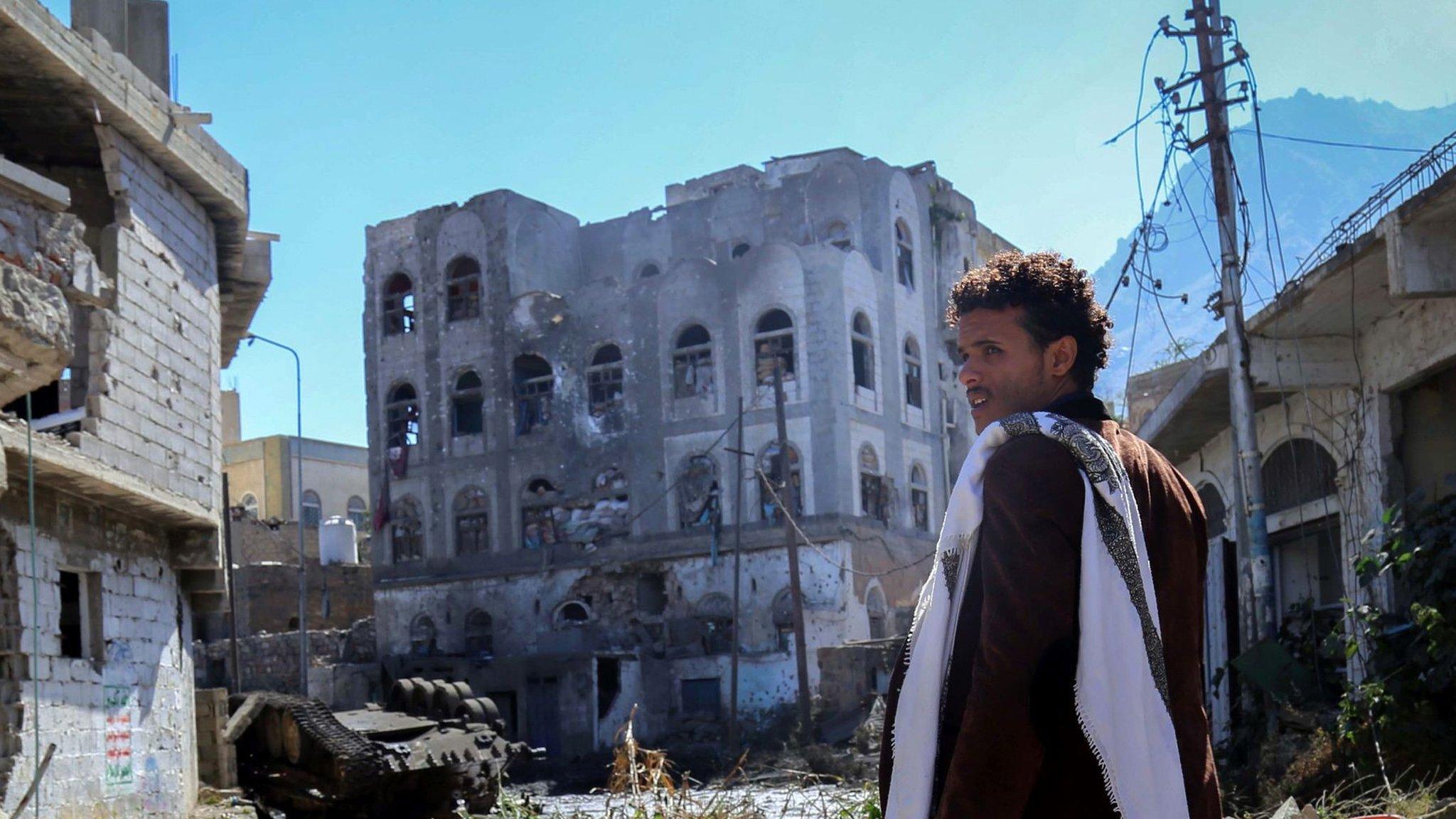UAE reinforcements in Eritrea ready to join Hudaydah battle
- Published
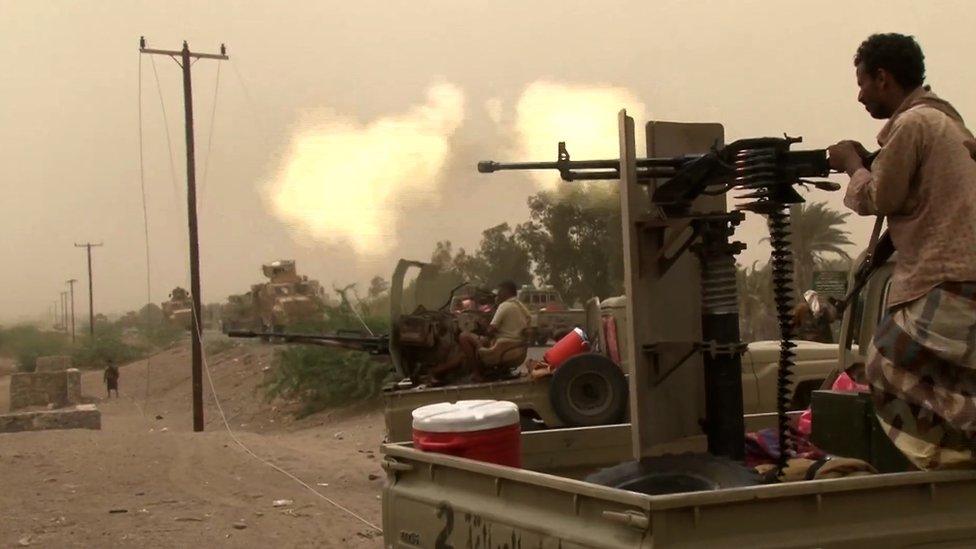
Houthi rebels are trying to hold the port city against pro-government forces, backed by Saudi Arabia
Military sources here in the United Arab Emirates (UAE) have told the BBC that a major force of Yemeni, UAE and Sudanese troops is on standby in Eritrea to take part in a final push to retake Hudaydah port from Houthi rebels.
The military campaign to drive out the Iranian-backed rebel militia from the key Red Sea port is being directed, funded and led by the UAE.
Officials here have responded to international objections to the campaign by emphasising that Hudaydah port remains open and that maintaining the flow of aid is a top priority.
Over the last two days a ground force of three Yemeni brigades has been advancing northwards towards the outskirts of the city, supported by UAE air strikes and helicopter gunships.
"They have punched through the green zone (of fertile land) relatively quickly to reach the gates of the airport" an unnamed spokesman said on Friday.
He added that the Houthis had laid multiple mines along the coastal strip as well as Improvised Explosive Devices (IEDs) that he said bore similarities to Iranian and Hezbollah devices used in Iraq and Lebanon.
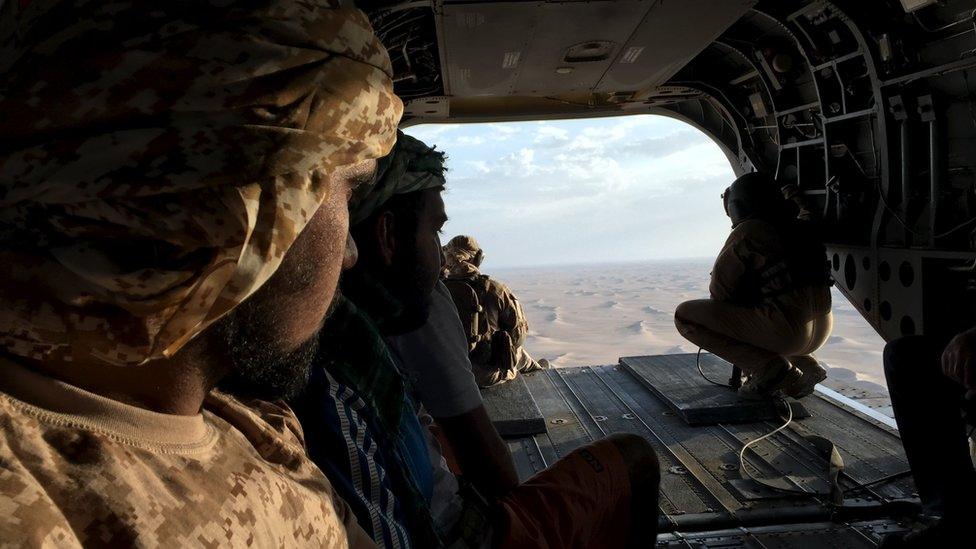
Emirati soldiers flying over the Yemeni desert
Around two thirds of Yemen's much-needed aid arrives through the rebel-held city and there have been international calls to halt the military operation for fear of disrupting the flow of aid.
But UAE officials say the delivery of humanitarian aid has always been an integral part of their planning which began two years ago. On Thursday they announced a 5-point plan to keep aid flowing in despite the military campaign.
Hudaydah has been in rebel hands for the last three years and the UAE believes it provides the Houthis with up to $40 million (£30m) a month in revenues.
The UAE also accuses the rebels of smuggling in arms from Iran, including ballistic missile parts, which both Iran and the Houthis deny. A UN report found that some weaponry had been supplied by Iran but could not determine when.
The coalition believes that if it can deprive the Houthis of these funds then they will quickly capitulate and negotiate a peace deal that ends Yemen's disastrous civil war.
But previous estimates of Houthi weakness have been misplaced and after more than three years of war the rebels still control most of the heavily populated areas in Yemen.
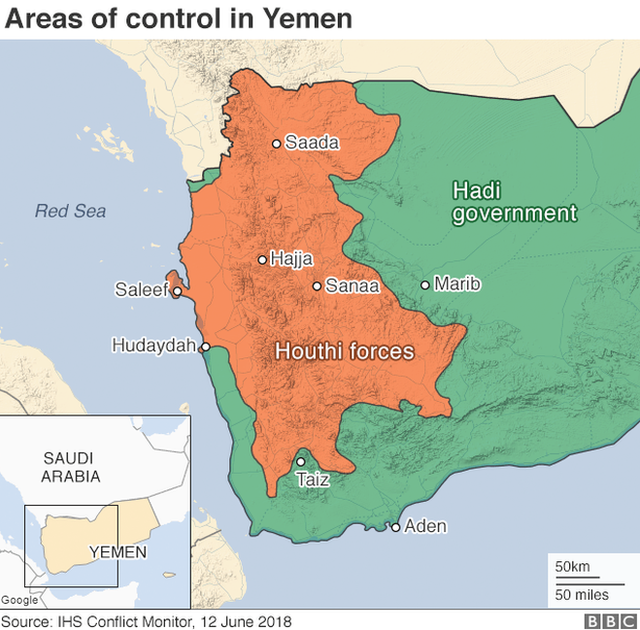
UAE military sources also said they had been deploying a deception plan with more actions to come. They said this had involved luring the Houthis into believing they were being attacked from the sea to the north of the city when in fact the coalition ground force was advancing up from the south.
But this has come at a cost. They said an anti-ship missile fired by the Houthis at a cluster of UAE naval vessels 24 nautical miles offshore killed 4 Emirati navy personnel.
Meanwhile on the UAE-leased base in Eritrea a "significant" force of UAE F16 and other military aircraft is poised to carry out more air strikes.
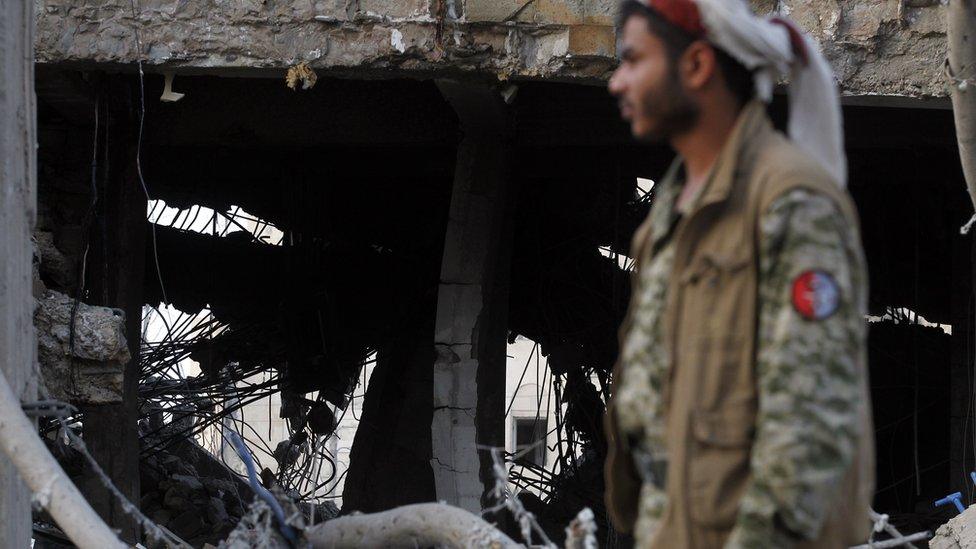
Air strikes have killed thousands in Houthi-held areas of Yemen
The UAE spokesman said "you are not going to see a Mosul situation where air power will flatten whole city blocks".
Yet air strikes by the Saudi-led coalition have already caused high casualties in Yemen while failing to dislodge the Houthis from most major cities.
On Friday the CEO of the International Rescue Committee (IRC), David Miliband, told the BBC that out of 100,000 air strikes over the last 3 years, around 4,500 had hit civilians.
- Published15 June 2018
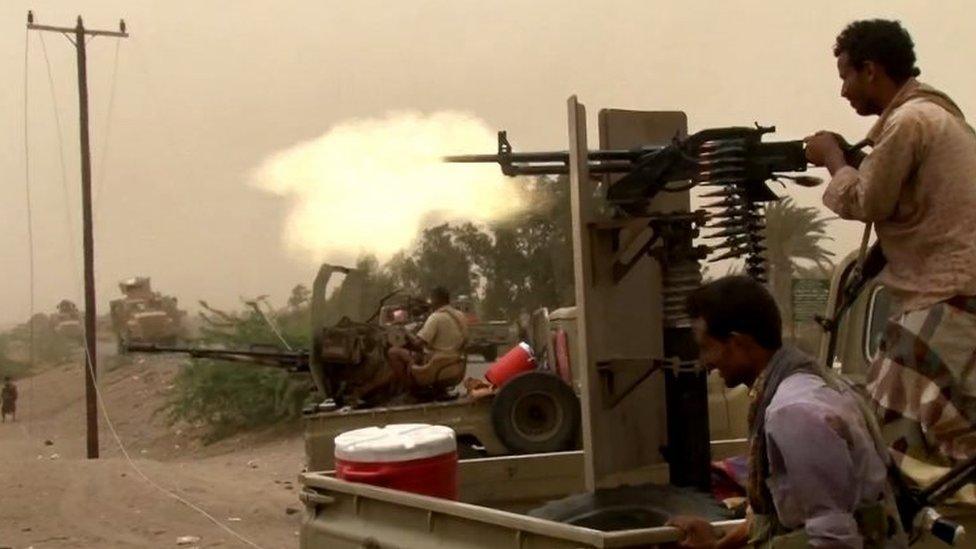
- Published14 June 2018
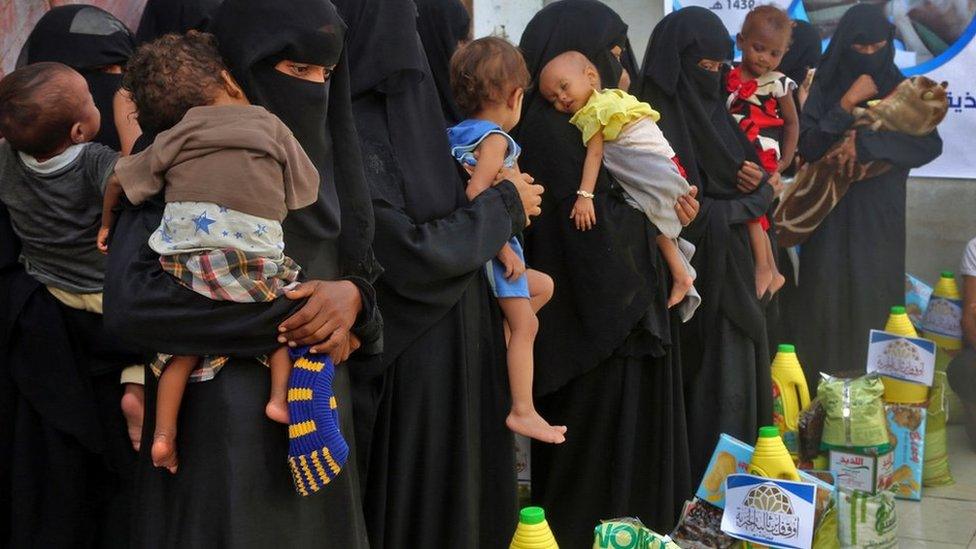
- Published1 December 2016
